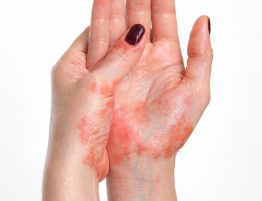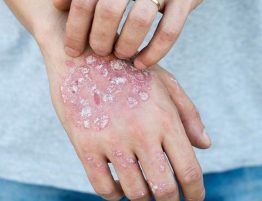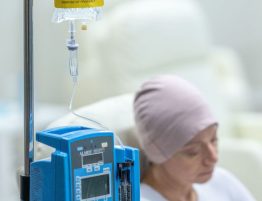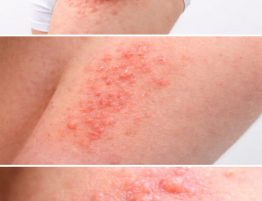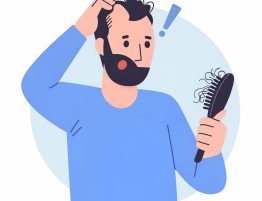
Human Immunodeficiency Viruses (HIV) are two species of Lentivirus (a subgroup of retrovirus) that infects humans. HIV is a virus that damages the immune system.
The immune system helps the body fight off infections. Untreated HIV infects and kills CD4 cells, which are a type of immune cell called T cells. Over time, as HIV kills more CD4 cells, the body is more likely to get various types of infections and cancers.
Nowadays, HIV treatment can stop the virus spreading and if used early enough, can reverse damage to the immune system.
HIV is most transmitted through having unprotected sex with someone with HIV who isn’t taking HIV treatment. Unprotected sex means having sex without taking HIV PrEP or using condoms.
HIV can also be transmitted through bodily fluids such as:
- Blood
- Semen
- Vaginal and rectal fluids
- Breast milk
Some of the ways HIV is spread from person to person include:
- through vaginal or anal sex — the most common route of transmission, especially among men who have sex with men
- by sharing needles, syringes, and other items for injection drug use
- by sharing tattoo equipment without sterilizing it between uses
- during pregnancy, labor, or delivery from a woman to her baby
- during breastfeeding
- through “pre-mastication,” or chewing a baby’s food before feeding it to them
- through exposure to the blood of someone living with HIV, such as through a needle stick
To transmit HIV, these fluids must contain enough of the virus. If a person has “undetectable” HIV, they will not transmit HIV to another person, even if after a transfer of fluids.
Undetectable HIV is when the amount of HIV in the body is so low that a blood test cannot detect it. People may be able to achieve undetectable levels of HIV by closely following the prescribed course of treatment.
AIDS
AIDS is a disease that can develop in people with HIV. It’s the most advanced stage of HIV.
HIV kills CD4 cells. Healthy adults generally have a CD4 count of 500 to 1,500 per cubic millimeter. A person with HIV whose CD4 count falls below 200 per cubic millimeter will be diagnosed with AIDS.
A person can also be diagnosed with AIDS if they have HIV and develop an opportunistic infection or cancer that’s rare in people who don’t have HIV. An opportunistic infection, such as pneumonia, is one that takes advantage of a unique situation, such as HIV.
HIV and AIDS Connection:
To develop AIDS, a person has to have contracted HIV. But just because a person has HIV doesn’t mean they’ll develop AIDS.
Cases of HIV progress through 3 stages:
- Stage 1 – acute stage, the first few weeks after transmission
- Stage 2 – clinical latency or chronic stage
- Stage 3 – AIDS
Early Signs and Symptoms of HIV
- fever
- chills
- swollen lymph nodes
- general aches and pains
- skin rash
- sore throat
- headache
- nausea
- upset stomach
After the first month or so, HIV enters the clinical latency stage. This stage can last from a few years to a few decades. Some people don’t have any symptoms during this time, while others may have minimal or nonspecific symptoms.
A nonspecific symptom is a symptom that doesn’t pertain to one specific disease or condition.
These nonspecific symptoms may include:
- headaches and other aches and pains
- swollen lymph nodes
- recurrent fevers
- night sweats
- fatigue
- nausea
- vomiting
- diarrhea
- weight loss
- skin rashes
- recurrent oral or vaginal yeast infections
- pneumonia
- Shingles
Treatment
No cure is currently available for HIV or AIDS.
However, treatments can stop the progression of the condition and allow most people living with HIV the opportunity to live a long and relatively healthy life.
Starting ART early in the progression of the virus is crucial. This improves quality of life, extends life expectancy, and reduces the risk of transmission.
- Emergency HIV pills, or post-exposure prophylaxis
- Antiretroviral drugs
- Protease inhibitors
- Integrase inhibitors
- Nucleoside/nucleotide reverse transcriptase inhibitors (NRTIs)
- Non-nucleoside reverse transcriptase inhibitors (NNRTIs)
- Chemokine co-receptor antagonists
- Entry inhibitors
- Complementary or alternative medicine
What We Offer
We at Almurshidi Medical Tourism will find the best doctors to cater to your needs. We are partnered with a wide network of hospitals and clinics that provide top quality medical experience.
We provide free medical estimates, make medical appointments, and provide several medical opinions if needed at no cost.
Contact Us
For more information contact us at +66822004040 or via WhatsApp

